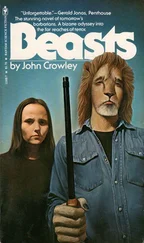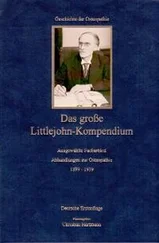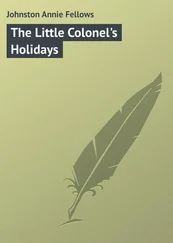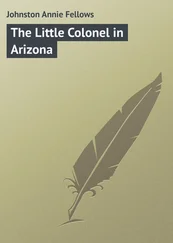“Does it have,” Violet asked, “a happy ending?” She’d asked all this before; these weren’t questions, but exchanges, as though she and Mrs. Underhill passed back and forth, with compliments, the same gift: each time expressing surprise and gratitude.
“Well, who’s to say,” Mrs. Underhill said. The scarf grew longer, row by row. “It’s a Tale, is all. There are only short ones and long ones. Yours is the longest I know.” Something, not a cat, began to unravel Mrs. Underhill’s fat ball of yam. “Stop that, bold thing!” she said, and beat at it with a knitting needle she drew from behind her ear. She shook her head at Violet. “Not a moment’s peace in centuries.”
Violet got up and cupped her hand to Mrs. Underhill’s ear. Mrs. Underhill leaned close, grinning, ready for secrets.
“Are they listening?” Violet whispered.
Mrs. Underhill put her fingers to her lips. “I think not,” she said.
“Then tell me truly,” Violet said. “How do you come to be here?”
Mrs. Underhill started in surprise. “I?” she said. “Whatever do you mean, child? I’ve been here all the time. It’s you who’ve been in motion.” She took up her whispering needles. “Use your sense.” She leaned back in her rocker; something caught beneath the tread shrieked, and Mrs. Underhill grinned maliciously.
“Not a moment’s peace,” she said, “in centuries.”
After his marriage, John Drinkwater began to retire, or retreat, more and more from an active life in architecture. The buildings he would have been called on to build came to seem to him at once heavy, obtuse, and lifeless, and at the same time ephemeral. He remained with the firm; he was constantly consulted, and his ideas and exquisite initial sketches (when reduced to ordinariness by his partners and their teams of engineers) continued to alter the cities of the east, hut they were no longer his life’s work.
There were other schemes to occupy him. He designed a folding bed of astonishing ingenuity, in effect an entire bedroom disguised as or contained within a sort of wardrobe or armoire, which in a moment—a quick motion of brass catches and levers, a shift of heavy counterweighting—became the bed which made the bedroom a bedroom. He enjoyed that idea, a bedroom within the bedroom, and even patented his scheme, hut the only buyer he ever found was his partner Mouse, who (chiefly as a favor) installed a few in his City apartments. And then there was the Cosmo-Opticon: he spent a happy year working on this with his friend the inventor Henry Cloud, the only man John Drinkwater had ever known who could actually sense the spin of the earth on its axis and its motion around the sun. The Cosmo-Opticon was an enormous, hideously expensive stained-glass-and-wrought- iron representation of the Zodiacal heavens and their movement, and the movement of the planets within them. And it did move: its owner could sit within it on a green plush seat, and as great weights fell and clockwork ticked over, the dome of many-colored glass would move just as the heavens did in their apparent motion. It was a measure of Drinkwater’s abstraction that he thought there would be a ready market for this strange toy among the wealthy.
And yet—strange—no matter how he removed himself from the world, no matter how he poured the rich gains of his working life into such schemes, he flourished; his investments turned over at a great rate, his fortune only increased.
Protected, Violet said. Taking tea at the stone table he had placed to overlook the Park, John Drinkwater looked up at the sky. He had tried to feel protected. He had tried to repose himself within the protection she was so certain of, and to laugh at the world’s weather from within it. But in his heart he felt unsheltered, bare-headed, abroad.
In fact, as he grew older, he became more and more concerned with the weather. He collected almanacs scientific and not so, and he studied the daily weather surmise in his paper though it was the divination of priests he didn’t entirely trust—he only hoped, without having reason to, that they were right when they read the omens Fair and wrong when they read them Foul. He watched the summer sky especially, could feel as a burden on his own back any far-off cloud that might obscure the sun, or that might bring others after it. When fluffy harmless cumulus trod the sky like sheep, he was at ease but watchful. They could combine suddenly into thunderheads, they could drive him indoors to listen to the dull fall of rain on his roofs.
(As they seemed just now to be doing, over in the west, and he powerless to stop them. They drew his eye, and each time he looked they were piled that much higher. The air was dense and palpable. There was then little hope that rain and storm would not begin soon. He was not reconciled.)
In the winter, he wept often; in the spring he was desperately impatient, rageful when he found heaps of winter still piled in the corners of April. When Violet spoke of spring she meant a time of flowers and baby animals—a notion. A single clear day in April was like what she had in mind, he supposed. Or May, rather, because it had become clear to him that her idea of the qualities of months differed from his: hers were English months, Februaries when the snow melted and Aprils when flowers burst, not the months of this harsher exile place. May, there, was like June here. And no experience of these American months could change her mind: or even reach it, he sometimes thought.
Perhaps that conspiracy of cloud on the horizon was stationary, a kind of decoration merely, like the high-piled clouds behind country scenes in his children’s picture books. But the air around him belied that: laden and sparkling with change.
Violet thought (or did she?—he spent hours grappling with her cryptic remarks, with Dr. Bramble’s elaborate explications for a guide, and yet he wasn’t sure) that it was always spring There., But spring is a change only. All seasons, collated into a string of fast-following days like changes of mood. Was that what she meant? Or did she mean the notional spring of young grass and newunfurled leaves, changeless single equinoctial day? There is no spring. Perhaps it was a joke. There would be precedent for that. He felt sometimes that all she said to his urgent inquiries was a joke. Spring is all seasons and no season. It’s always spring There. There is no There. A humid wave of despair washed over him: a thunder mood, he knew, and yet…
It wasn’t that he loved her less as they grew older (or rather as he grew older and she grew up); only that he lost that first wild certainty that she would lead him somewhere , a certainty that he had because for sure she had been there herself. He couldn’t, as it happened, follow. After a bitter year he knew that. Better years followed. He would be Purchas to her pilgrims: he would tell her journeys to the world, her traveler’s tall tales of marvels he would never see. She had intimated to him (he thought) that without the house he had built the whole Tale could not be told, that it was the beginning and perhaps the end, in some way, like the house that Jack built, cause of a chain. He didn’t understand, but he was satisfied.
And there was no time when (even after years, after three children, after who knows how much water under what crumbling bridges) his heart would not swell when she came up to him and put her small hands on him suddenly and whispered in his ear Go to bed, old Goat —Goat she called him for his shameless ceaselessness—and he would mount the stairs and await her.
And look what he possessed now, all framed against the vertiginous height of cloud forming.
Here were his daughters Timothea Wilhelmina and Nora Angelica come home from a swim. And his son (her son, his) Auberon stalking across the lawn with his camera as though seeking something to strike with it. And his baby August in a sailor suit, who had never smelled the sea. He had named him for that month when the year stands still and blue day follows blue day, when for a while he stopped looking at the sky. He looked at the sky now. The white clouds were being edged with somber gray, sagging like old men’s sad eyes. Yet still before him his shadow lay amid the shadows of leaves. He shook his newspaper and changed the way his legs were crossed. Enjoy, enjoy.
Читать дальше












